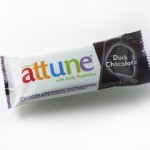ASK BeFreeForMe: What are Probiotics? Are they helpful for people with Celiac Disease?
Monday, May 3rd, 2010Question: I’ve heard a lot lately about probiotics? What are they? Are they helpful for people with celiac disease?
When this question was asked by a BeFreeForMe member I decided to turn to one of my most reliable sources, Dr. Daniel Leffler, Instructor in Medicine at Harvard Medical School, and Division of Gastroenterology at Beth Israel Deaconess Medical Center in Boston. During our conversations I was thrilled to learn that Dr. Leffler has recently launched his co-authored book, Real Life with Celiac Disease: Troubleshooting and Thriving Gluten Free (AGA Press, May 2010), which is available now at www.gastro.org/patient-center or your local bookstore. Check it out and get your copy now.
Do you have a question for Dr. Leffler? Do you have a question for Shelley Case? Is so, email me at Ask@BeFreeForMe.com. Your question may be selected for our next column.
Be Free!
Kathleen Reale
Founder – BeFreeForMe.com
——————–
What exactly are probiotics?
The intestine is filled with countless microorganisms, mostly bacteria, but also yeasts and viruses among others. Generally there are few bacteria in the top of the intestinal tract (stomach and beginning of the small intestine) and huge numbers in the colon.
Probiotics, commonly referred to as “good bacteria,” are living microbial food ingredients that, when ingested in adequate amounts, are beneficial to health. Even though the science behind them is relatively new, their use goes back to ancient times when, in many areas of the Roman Empire, people used products fermented by bacteria with the assumption they would be beneficial to health.
Scientists had long considered probiotics to be a popular remedy devoid of any real effect. But in the last 15 years, they have been the focus of a great deal of laboratory and clinical research. As a result, we now have identified a number of microorganisms that can improve health in a variety of ways. We are just beginning to learn about the ways our body interacts with the microorganisms that live within us. Although our understanding of this exciting area is primitive, it is clear that there is are many complicated relationships between intestinal microbes and health
What are the benefits of probiotics?
There are many suggested benefits of probiotics but only a few are supported by scientific data at this time. While the following section focuses on an area we are most certain of, it is important to recognize that this is a young science. Little is known about the types of probiotics that are best for specific problems. On the other hand, with the exception of individuals who have significantly impaired immune systems, probiotics appear to be very safe. For this reason, there is little reason, in consultation with your health care provider, not to consider a trial of at least one or two types of probiotics for a symptom or issue.
I have celiac disease, can probiotics help me?
One of the most important functions of the intestine is to prevent ingested toxins and antigens from getting into the blood. This barrier function is largely the job of the ‘tight junctions’ which connect adjacent cells in the intestinal lining. With injury to the intestine, as in untreated celiac disease, tight junctions do not function as well causing what is known commonly as ‘leaky gut’. Probiotics may be beneficial by improving tight junctions and reducing inflammation. There is also some laboratory evidence that certain types of probiotics can make gluten less toxic.
It is important to note that probiotics cannot replace the gluten free diet or even allows one to be less strict with the gluten free diet; however they can be very helpful for individuals who are still having symptoms despite a strict gluten free diet.
What are some quick and easy ways to get probiotics into my diet?
There are many types and preparations of probiotics on the market. They can come in pills, powders, yogurts, snack bars and, drinks and candies. This is important because not all preparations contain useful or even living microorganisms. It is impossible to give a comprehensive listing of the probiotics available, although the nonprofit organizations USprobiotics, (www.usprobiotics.org) and The American Gastroenterological Association (www.gastro.org) provide helpful information on probiotics.
Adapted from: Guandalini S, Felipez L. ‘Probiotics in Celiac Disease’ from: Real Life with Celiac Disease: Troubleshooting and Thriving Gluten Free by Melinda Dennis, MS, RD, LDN, and Daniel A. Leffler, MD, MS, published by AGA Press May 2010. Available at www.gastro.org/patient-center or your local bookstore.
——————–
This column is sponsored by Attune Foods (www.AttuneFoods.com), a sponsor of the Celiac Disease Foundation. Attune makes gluten free chocolate probiotics bars that are a portable, easy way to get probiotics into your diet daily!
